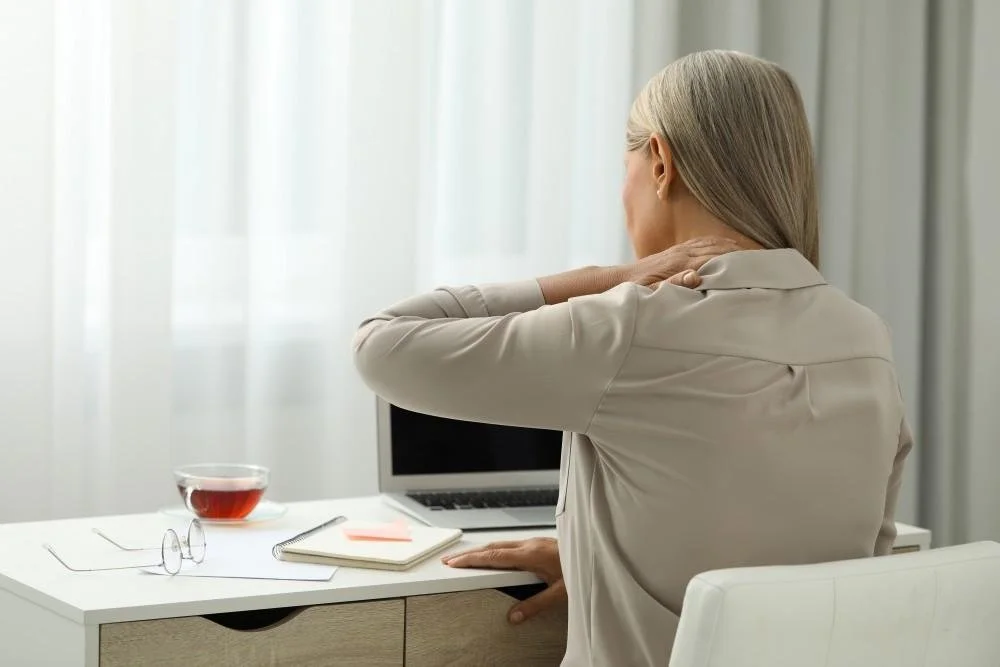The Perils of Prolonged Sitting: Unveiling the Hidden Health Hazards
In the age of technology and convenience, sedentary lifestyles have become the norm. However, the implications of prolonged sitting are more severe than many might realize. Recent research, including a study published in the Journal of Applied Physiology, has shed light on the serious health risks associated with sitting for extended periods.
How Does Sitting Impact The Benefits of Exercise?
The Journal of Applied Physiology published a groundbreaking study revealing a startling connection between prolonged sitting and the effectiveness of exercise. The study found that sitting for more than 13 hours a day could potentially negate the benefits of regular exercise. This insight is particularly alarming considering the modern work culture, where sitting for long hours is commonplace.
Metabolic Slowdown: A Closer Look
One of the major concerns with prolonged sitting is its impact on metabolism. Metabolism encompasses all the chemical processes that occur within a living organism to maintain life, including the conversion of food to energy. When you sit for extended periods, your metabolism slows down, primarily because your muscles are less active and require less fuel.
The relationship between sitting and metabolic slowdown is not merely about the duration but also the continuity of sitting. Studies suggest that uninterrupted sitting can lead to a significant decrease in the activity of lipoprotein lipase, an enzyme involved in fat metabolism. This decrease can occur in as little as a few hours of continuous sitting.
Breaking the Sitting Cycle: How Often Should You Move?
The key to mitigating the negative effects of sitting is to introduce regular movement into your day. Experts recommend standing up or taking a brief walk every 30 minutes. This practice can kickstart your metabolism, improve blood circulation, and reduce the risks associated with prolonged sitting.
Simple Ways to Incorporate Movement into Your Day
Adding more movement to your day doesn't necessarily mean dedicating hours to the gym. Here are some simple, practical tips:
Standing Desk: Consider a standing desk or a convertible workstation to alternate between sitting and standing.
Walking Meetings: Propose walking meetings instead of traditional sit-down meetings.
Regular Breaks: Set a timer to remind yourself to stand up and move every 30 minutes.
Active Commuting: If possible, bike or walk to work. If you use public transportation, consider getting off a stop early and walking the rest of the way.
Stair Climbing: Opt for the stairs instead of the elevator for short trips.
The Health Risks of Prolonged Sitting
Prolonged sitting is associated with a plethora of health risks. Some of the most significant include:
Cardiovascular Diseases: Extended sitting periods can lead to increased blood pressure and elevated cholesterol levels, contributing to heart disease.
Metabolic Syndrome: Sitting for long periods is linked to metabolic syndrome, a cluster of conditions including increased blood pressure, high blood sugar, excess body fat around the waist, and abnormal cholesterol levels.
Musculoskeletal Disorders: Sitting, especially in poor postures, can lead to back and neck pain, reduced flexibility, and muscle degeneration.
Mental Health: There is also a notable impact on mental health, with sedentary behavior being linked to an increased risk of depression and anxiety.
While the modern lifestyle may predispose many to a sedentary routine, understanding the health risks associated with prolonged sitting is crucial. By incorporating regular movement into our daily routine, we can mitigate these risks and pave the way for a healthier life. It's not just about moving; it's about moving regularly and breaking the cycle of continuous sitting. As the research suggests, the key to a healthier life may just be a stand-up decision away.

